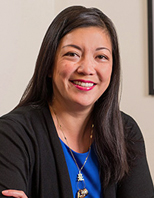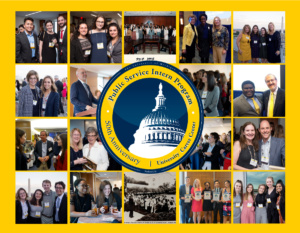Read Full Story at The National Academies
The National Academy of Medicine (NAM) has selected 10 professionals for the inaugural class of the NAM Scholars in Diagnostic Excellence program. Funded by the Gordon and Betty Moore Foundation, this collaborative program with the Council of Medical Specialty Societies (CMSS) supports up to 10 scholars in a one-year, part-time experience to advance the scholars’ diagnostic skills, reduce diagnostic errors that lead to patient harm, and accelerate their career development as national leaders in this field. The scholars were chosen based on their professional qualifications and accomplishments, demonstrated leadership in the field, potential to advance diagnostic excellence, and quality, feasibility, and implementation of their project proposals.
Scholars will build upon the work of the 2015 National Academies of Sciences, Engineering, and Medicine consensus report Improving Diagnosis in Health Care, and propose the implementation of programs that will improve diagnosis and reduce diagnostic errors at the national level.
“We were delighted with the outstanding proposals submitted in the first year of this important program,” said Victor J. Dzau, president of the National Academy of Medicine. “We look forward to working with such an impressive cohort of extraordinary scholars, and my hope is that their work to improve diagnostic quality and safety will have profound effects not only on the way our health care system operates but also on the lives of patients.”
The 2021 NAM Scholars in Diagnostic Excellence and their proposal titles are:
- Jonathan Baghdadi, M.D., Ph.D., assistant professor, department of epidemiology and public health, University of Maryland School of Medicine, Baltimore
“Diagnostic Stewardship of Multiplex Molecular Panels to Reduce Diagnostic Error” - Komal Bajaj, M.D., M.S.-HPEd, chief quality officer, NYC Health + Hospitals/Jacobi, and professor of obstetrics and gynecology and women’s health, Albert Einstein College of Medicine, Bronx, New York
“Not a moment to lose! Using simulation to identify and mitigate diagnostic errors that contribute to delays during maternal hemorrhage care” - Efrén J. Flores, M.D., assistant professor of radiology, Harvard Medical School; officer, radiology community health and equity; radiologist, Thoracic and Emergency Divisions; faculty, The Mongan Institute, Massachusetts General Hospital, Boston
“A community-based participatory approach to understand current and emerging barriers and promoters to lung cancer screening (LCS) one-year post-COVID-19 pandemic start and guide culturally tailored LCS outreach among Latino communities” - Linda Geng, M.D., Ph.D., clinical assistant professor, department of medicine, Stanford University, Stanford, California
“Improving the diagnosis of underrecognized diseases in racial and ethnic minorities through patient engagement and empowerment” - Traber D. Giardina, Ph.D., M.S.W., assistant professor, department of medicine, Baylor College of Medicine; investigator, Center for Innovations in Quality, Effectiveness and Safety, Michael E DeBakey Houston Veteran Affairs Medical Center, Houston
“Overcoming Barriers to Diagnostic Safety for Underrepresented Populations: Implementing Structured Tools to Engage Patients in Diagnosis (The ISTEP Dx Project)” - Cornelius A. James, M.D., general internist and general pediatrician; medical educator, departments of internal medicine and pediatrics, University of Michigan Medical School, Ann Arbor
“Data Augmented, Technology Assisted Medical Decision Making and Diagnosis (DATA-MD): A Novel Curriculum” - Jessica Keim-Malpass, Ph.D., R.N., associate professor, department of acute and specialty care, School of Nursing; department of pediatrics, School of Medicine, University of Virginia, Charlottesville
“Developing an economic framework to achieve diagnostic excellence in sepsis: Achieving balance between early diagnostic action and medical overuse” - Mei-Sing Ong, Ph.D., assistant professor, department of population medicine, Harvard Medical School and Harvard Pilgrim Health Care Institute, Boston
“A data-driven approach towards understanding the patterns of diagnostic delay” - Jorge Rodriguez, M.D., clinician-investigator, Division of General Internal Medicine and Primary Care, Brigham and Women’s Hospital, Boston
“Towards Diagnostic Equity: Evaluating Diagnostic Error in Telemedicine Among Limited English Proficient Patients Presenting with Abdominal Pain” - Lekshmi Santhosh, M.D., M.A.Ed., assistant professor of pulmonary/critical care medicine and hospital medicine, department of medicine, University of California, San Francisco
“PAUSE for Uncertainty: Development & Implementation of a Novel Framework for Diagnostic Uncertainty During Transitions of Care”






